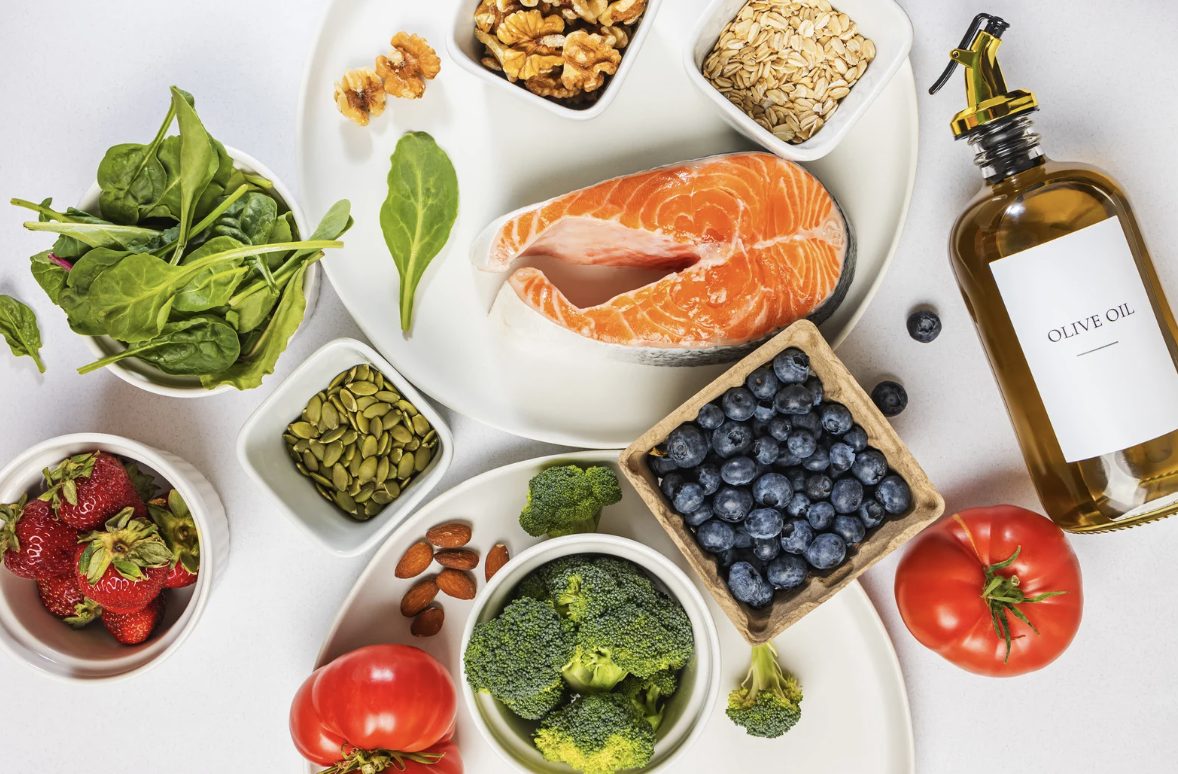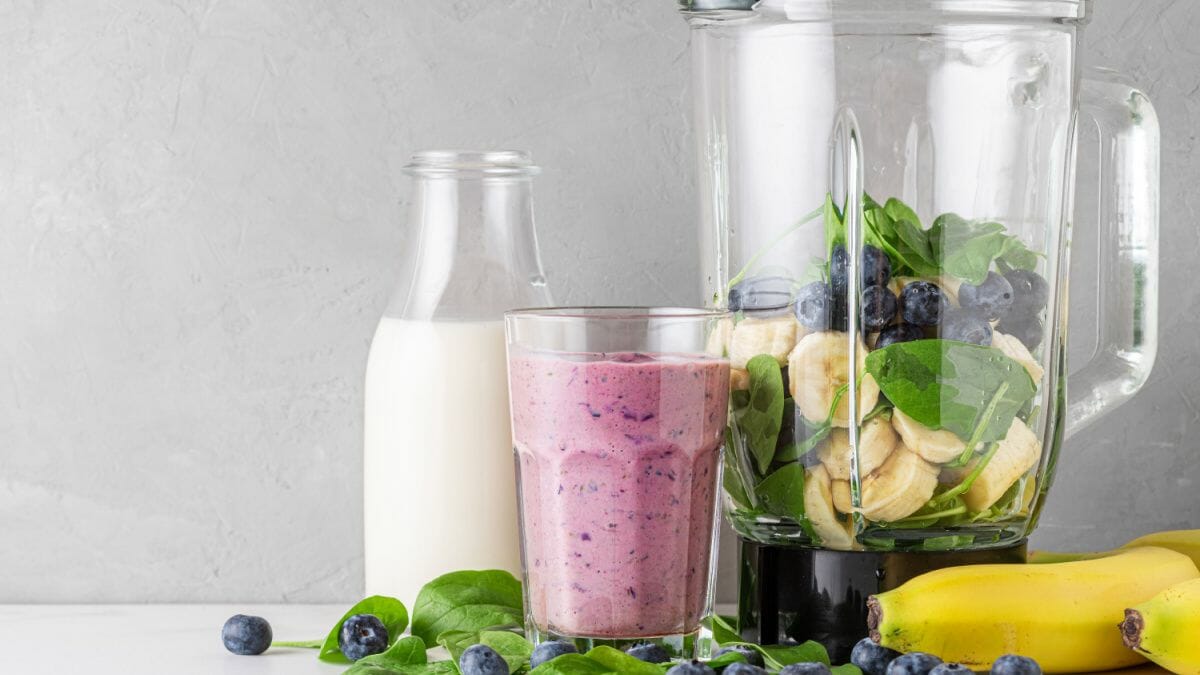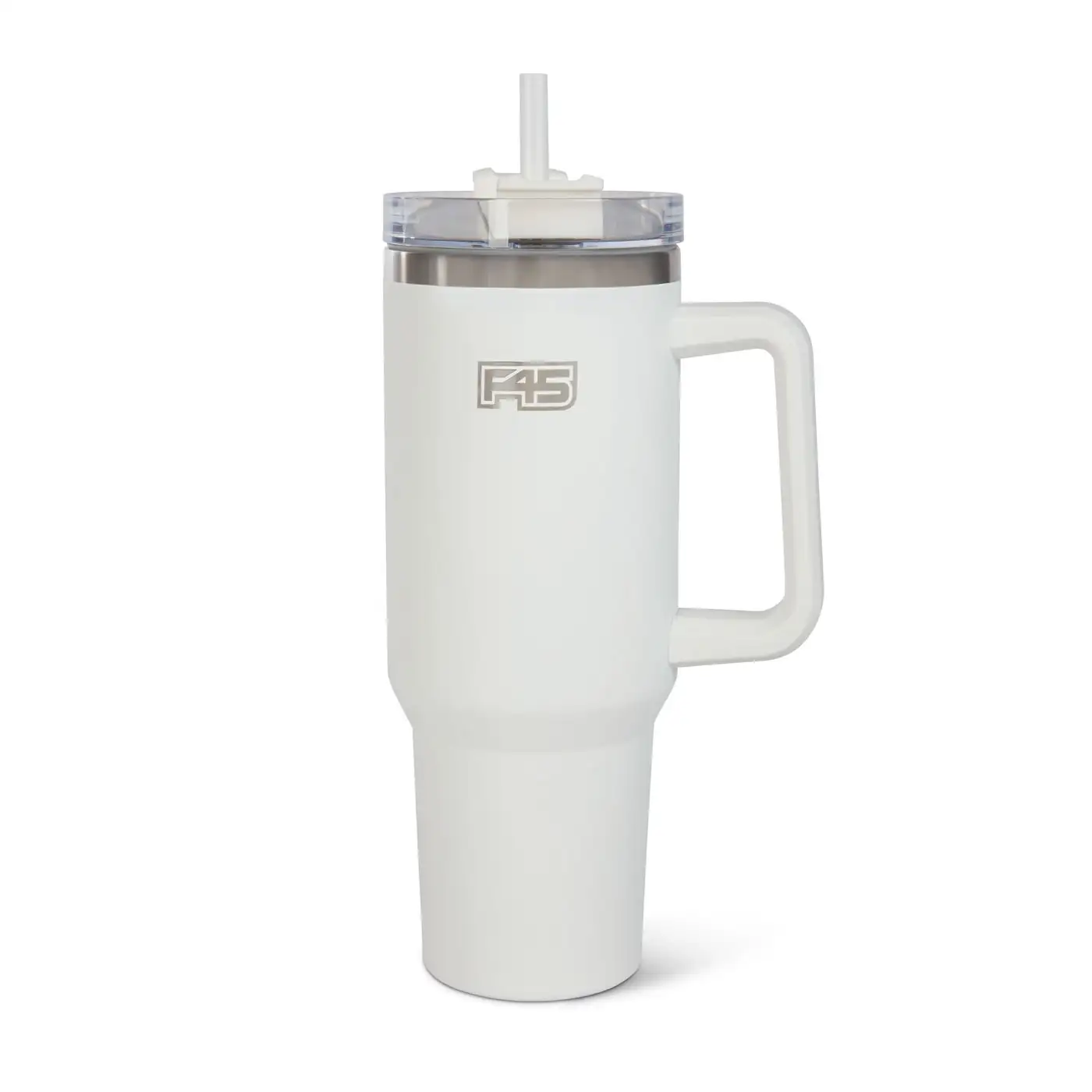November 2 2023 | Ashleigh Kidd, RD, LDN
Hey team! Back here again this Challenge to separate fact from fiction when it comes to nutrition. Want your burning questions answered? Head to our IG (@f45Training) every Thursday to play Fact or Fiction and submit your nutrition questions to be answered by your Challenge Dietitian!

Alright, let’s play!
Fact or Fiction: Brown rice is “better” than white rice
It’s not that simple!
When it comes to the nutrition of brown rice vs. white rice, brown rice is the more nutrient dense option. Because it’s a whole grain, It contains more fiber, slightly more protein, and a larger variety of micronutrients like B vitamins, selenium, magnesium, manganese, vitamin E, and & phytochemicals (although white rice is often enriched with B vitamins & Iron). Because of this, brown rice may leave you feeling more satisfied at your meal vs. white rice, and may aid in maintaining stable blood glucose.
However! If you prefer white rice, the good news is you can enjoy it and get fiber and the micronutrients you might be missing elsewhere in your meal and throughout your day. White rice may also be better choice if you have certain digestive issues when it comes to digesting foods higher in fiber. All in all, brown rice and white rice can both fit as a part of a balanced diet!
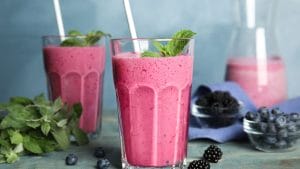
Fact or Fiction: Hydration only comes from drinking plain water
Fiction!
While you want to aim for most of your fluids to come from drinking unsweetened beverages, like water, about 20% of your daily water needs typically comes from food!
According to the Academy of Nutrition and Dietetics and eatright.org, the following foods have higher water content:
Foods with a 90-100% water content:
- Drinks like water, sparkling water and fat-free milk.
- Fruits, especially cantaloupe, strawberries and watermelon.
- Vegetables like lettuce, cabbage, celery, spinach and cooked squash.
Foods with a 70-89% water content:
- Fruits including bananas, grapes, oranges, pears and pineapples.
- Vegetables such as carrots, cooked broccoli and avocados.
- Dairy products like yogurt, cottage cheese and ricotta cheese.
Remember that fluid needs vary. If you need help determining your individual fluid needs, consult with your Registered Dietitian or Medical Provider.

Fact or Fiction: Low-carb diets are best for sustained fat loss
Fiction!
With the exception of medical reasons, carbohydrates should make up 45-65% of your daily energy intake for most people. While you may notice weight loss following a low-carb diet (because you’re eating less and therefore in a caloric deficit), it’s not sustainable. Not only is not realistic to follow a low-carb diet long term, carbohydrates are ESSENTIAL to function optimally, especially for active individuals trying to gain muscle and lose fat.
Carbohydrates are not only our bodies primary and preferred source of energy, but they also provide a variety of micronutrients, help to balance blood sugars, aid in performance recovery, and are essential for a balanced plate (learn the benefits here).

Fact or Fiction: BMI is a good indicator of health
Fiction!
Although BMI (body mass index) is commonly used as a determinant of health, it may actually be one of the least accurate ways to assess a persons health. BMI was created in the 1830’s by Adolphe Jacques Quetelet, a mathmatician and astronomer, who explicity expressed that BMI should not be used to diagnose if a person is obese, overweight, or underweight. Despite this, BMI became the standard for diagnosing “obesity” in the 1980’s. ONE of the problems with this is that BMI only takes height and weight into account, disregarding body composition and the dozens of other individual health indicators.
BMI is also rooted in race bias. BMI was formulated using data from a sample group of white European men. This data has been used as a standard to generalize health information and guidelines for everyone, although not everyone is represented.
There are other issues with BMI including setting unrealistic weight standards, potential dismissal of health concerns and conditions, and the fact that there is no evidence that shows weight causes specific health issues (only correlations).
Challengers, if you don’t fall within the “normal” BMI range, please don’t fixate on this. The size of your body does not equal your health status. Better indicators of health include lab values, body composition, dietary recalls (food log), relationship with food, and mental health.
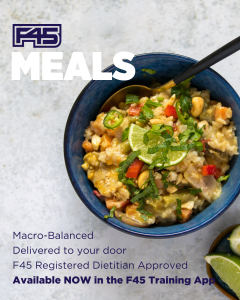
Have you ordered your meals for the remainder of Challenge? Check your area here for suppliers here.
For additional nutrition and wellness support, you can always check out F45 Articles for tips on how to improve your nutrition and relationship with food.
